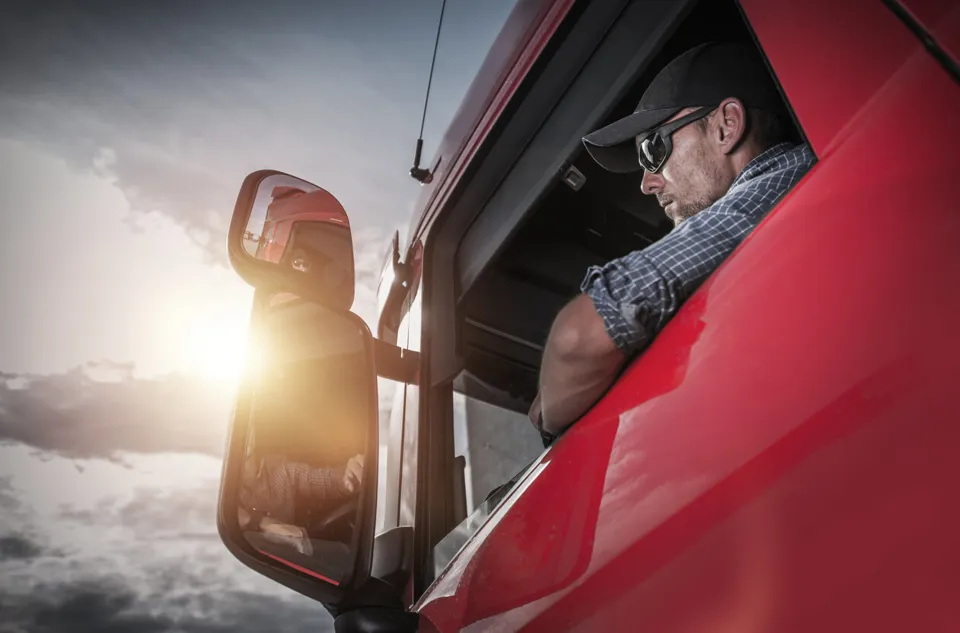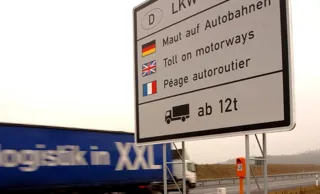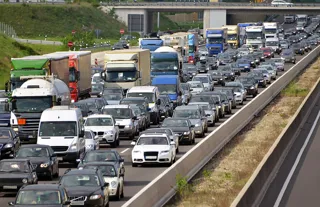Nike, Heineken and PepsiCo are calling on the EU to increase climate targets for trucks to help them meet their own green commitments.
In a letter to EU lawmakers signed by 41 hauliers, shippers, and logistics companies, including Maersk and DFDS, they say more ambitious CO2 standards in 2030 and 2040 will lower the costs and accelerate the production of zero-emission trucks at scale.
The companies are urging Members of the European Parliament and EU governments to increase the 2030 CO2 target from the currently proposed cut in emissions of 45% to 65%, to make sure that regulatory ambitions are brought in line with the ambitions of operators.
This, they say, would increase the number of green trucks on Europe’s roads in 2030 by more than 150,000 compared to the European Commission’s proposal.
Archana Jagannathan, chief sustainability officer at PepsiCo Europe, said: “PepsiCo’s ambition to reduce emissions by at least 40% by 2030 and to become net-zero by 2040 largely depends on the decarbonisation efforts of our value chain partners, which includes third party logistics.
“Therefore, the transition towards an affordable and emission-free movement of goods in Europe is our shared responsibility.
“We urge policymakers in Brussels to set more ambitious CO2 standards for trucks as it is not only a critical step towards achieving the EU's climate neutrality goals but also a strategic move for the success of our industry.”
The signatories urge the EU to set a clear date for 100% of new trucks to be zero emissions, which they say is crucial to decarbonise the sector by 2050, considering the average lifetime of trucks is around 18 years in Europe.
The letter says all truck types should be subject to climate targets to ensure manufacturers ramp up zero-emission vehicle production across all segments.
The Commission’s proposal exempted some vehicle types including garbage and construction trucks and some urban delivery trucks, which are often easy to electrify – with benefits for air quality in cities.
Kenny Kristensen, global head of energy transition execution at Maersk Landside Transportation, says that the company is fully committed to achieving net-zero greenhouse gas emissions by 2040. “Doing so requires significant investments and we believe that committing to a 2035 end year for fossil-fuel powered vehicles purchases brings us closer to achieving our emission targets and thus helping our customers reduce their greenhouse gas footprint,” he said.
“But driving the energy transition of road freight cannot be done only by leading companies such as Maersk and many of our highly valued customers and logistics partners.
“More action is needed from regulators, business and consumers and we recommend all policies to set strong demand signals for the industry to accelerate the energy transition.”
Several companies have established more ambitious climate targets and emphasise the importance of a substantial increase in the availability and expedited delivery of a wider range of zero-emission trucks in the coming years.
The economies of scale will reduce upfront purchase costs of electric and hydrogen trucks and ensure they soon become less expensive to own and run than diesel trucks.
Sophie-Kim Chapman, head of decarbonisation at DFDS, said: “It’s in all of our interests to push for more zero-emission trucks on the road, earlier, and for clear intentions regarding both trucks and infrastructure. This will get us faster to both emissions reductions and to cost parity with diesel, and it enables transport operators like us to plan ahead with more confidence.”
The signatory companies acknowledge the EU has put in place enabling conditions for the roll-out of zero-emission trucks, including mandatory charging points and road toll discounts for electric and hydrogen trucks. They urge Member States to implement these EU laws as soon as possible.
The EU Commission has proposed a 45% CO2 reduction target (compared to 2019/2020 levels) for new trucks sold in 2030, rising to a 90% reduction in 2040.
EU environment ministers and the European Parliament are currently debating the draft standards and should agree on the final Regulation early next year.























Login to comment
Comments
No comments have been made yet.